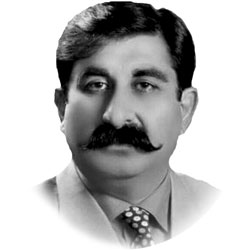The outcome of OIC summit 2021
WOULD the establishment of the trust fund help address Afghan problem? No pledges or donations were made yet to the newly created fund as the fund was just announced and hopefully member countries would start contributing to it soon.
Some of the member countries were unwilling to channel assistance through the Taliban government this is why a fund is set up.
The OIC has set up humanitarian fund to be operated by the Islamic Development Bank (IDB) to help avert the economic crisis in Afghanistan. The announcement of the fund was part of the measures the 57-member Islamic bloc agreed upon.
It is unclear if the decisions made by the OIC will make an immediate impact on the ground in Afghanistan, which is in dire need of humanitarian assistance.
The reason the trust fund has been set up is to establish a channel through which assistance could be provided to the people of Afghanistan. Because of the sanctions imposed by the US and other Western countries, there are no formal banking channels and financial system operating in Afghanistan.
In the absence of formal banking channels, the countries interested in helping the people of Afghanistan are finding it difficult to do so. Over 20 foreign ministers including those from Saudi Arabia, Turkey, Iran, Jordon and Kuwait attended the meeting.
The permanent members of the UNSC, EU and international financial institutions also attended the meeting, making it the biggest international gathering on Afghanistan since the Taliban takeover. The Afghan Acting Foreign Minister was also in attendance.
The OIC recent Islamabad summit has addressed sole issue of Afghanistan. The organization has relative political weight. Its rhetoric does not always translate into action on the ground. Adding to its political limitations is its inability to unify its stance on issues.
It is supposed to have unified voice but it does not because policies of the individual countries greatly differ. If you want to know what position member states can take in the eyes of their own public, statements by the OIC are reflective of that.
The statements show their limits. Because the organization includes a significant number of Arab states among its membership, it has often been compared with the Arab League (AL). While the two organisations share many similarities, the main difference lies in the OIC’s limited politicisation compared with the AL.
The AL is more of a political entity than the OIC given the close proximity of its members and the, often joint, threat that the countries have had to face in the past.
The extraordinary meeting of OIC held from January 27 to 29 in 1980 was convened against the backdrop of the Soviet Union’s invasion of Afghanistan.
The final declaration approved the suspension of Afghanistan’s OIC membership, in addition to cutting its financial and humanitarian aid, because the 57-member bloc wanted to penalise the Soviet-backed government in Kabul. The declaration decided to withhold recognition of the illegal regime until the complete withdrawal of Soviet troops from the country.
It also called upon all member states to stop aid and all forms of assistance given to the regime. Four decades later the Foreign Ministers of OIC member-states have met for another extraordinary session, but this time they are seeking humanitarian aid and economic assistance for Afghanistan.
Forty decades ago, when Foreign Ministers of the OIC met in Islamabad for an extraordinary session on Afghanistan, the agenda was in contrast to the one scheduled to hold in Islamabad. The agenda of the OIC meeting was in clear contrast with the one held in 1980.
This time OIC has tried to find the support of the international community to prevent humanitarian and economic collapse of Afghanistan.
Humanitarian crisis and economic collapse of Afghanistan would affect the entire world. If Afghan matter is not addressed timely Europe too would face an influx of refugees.
A number of delegates from the OIC and other countries arrived in Islamabad for a meeting. Afghan Acting Foreign Minister Amir Muttaqi held talks with his Pakistani counterpart. Pakistan feels that the Afghan Taliban have the rare opportunity to put forth their perspective before the largest international gathering.
The international community is concerned over the deteriorating humanitarian situation in Afghanistan, but is reluctant to work with the Taliban because many western countries believe that the Taliban are yet to fulfil their responsibilities, in particular they are concerned over the inclusive governance, rights of women, education for girls and alleged ties with terrorist outfits.
In the OIC recent Islamabad meeting the participants expressed their concerns to the top Taliban diplomat.
The US special envoy also participated and termed it timely initiative. Observers believe that the US is unlikely to make huge commitments to the Afghan cause as the issue no longer remains a priority for Jo Biden.
During the conference, Pakistan has tried to draw attention of the international community towards the deteriorating situation in Afghanistan. Pakistan has tried to seek help to avoid abandoning Afghanistan. Request to US is made to unfreeze Afghanistan’s foreign assets and the restoration of financial and banking channels.
The recent OIC conference has taken place at a time when the UN has come to know that 25 million Afghans are facing serious food shortage while 5 million children are at the risk of malnutrition. Over 95 percent of Afghans could slip below the poverty line within weeks if urgent steps are not taken to mitigate their problems.
Unfortunately, the US and Western countries have gathered Muslim countries, thrown everything on their shoulders and contributed nothing to the cause. To save Afghanistan from human catastrophe all sorts of monitory sanction should be lifted immediately. Mere contributions and donations can’t help avert tragedy.
— The writer is Professor of Politics and IR at International Islamic University, Islamabad.










